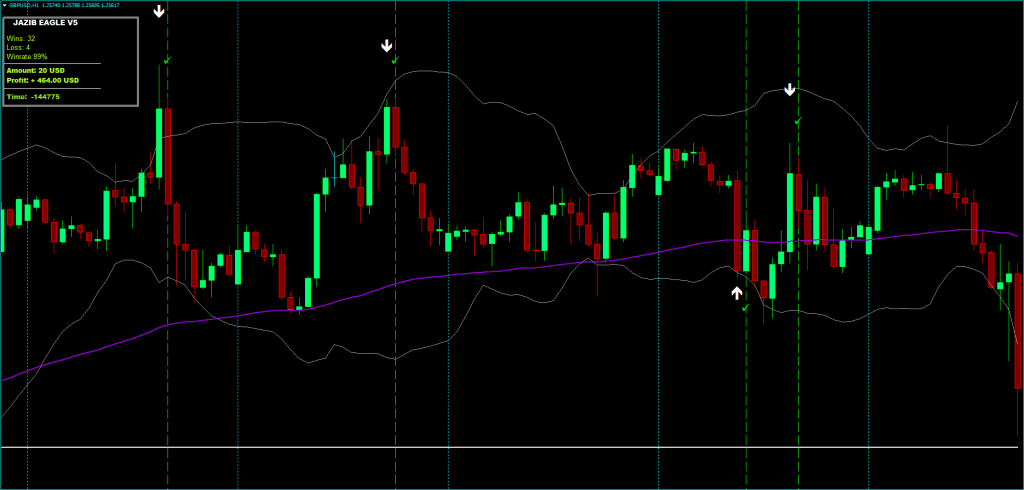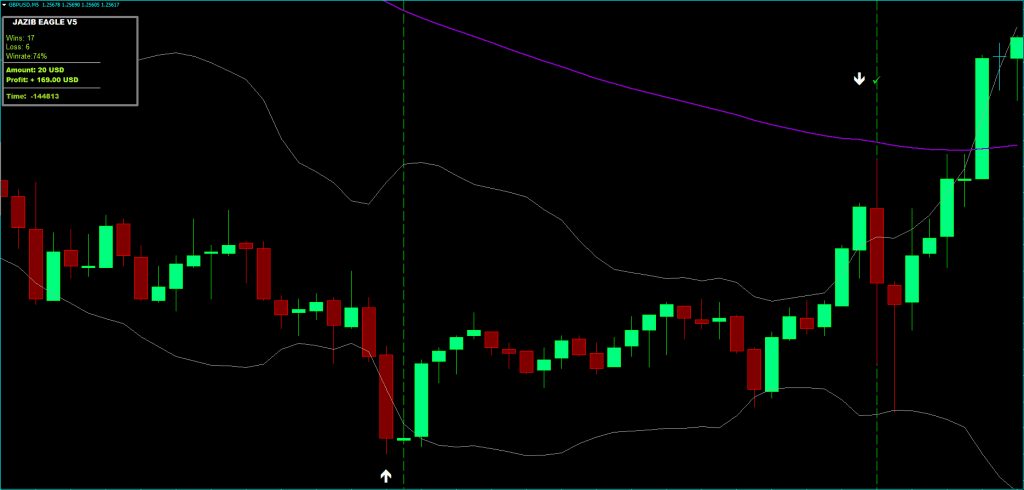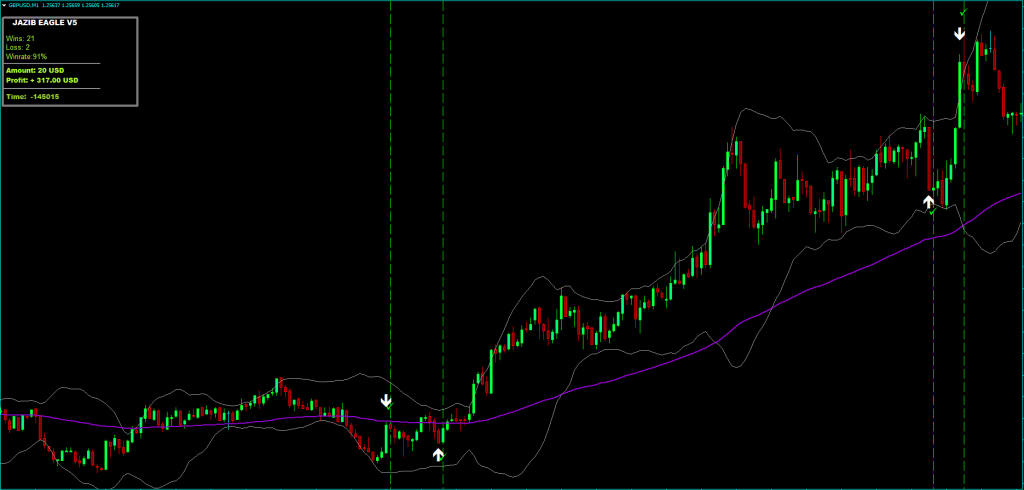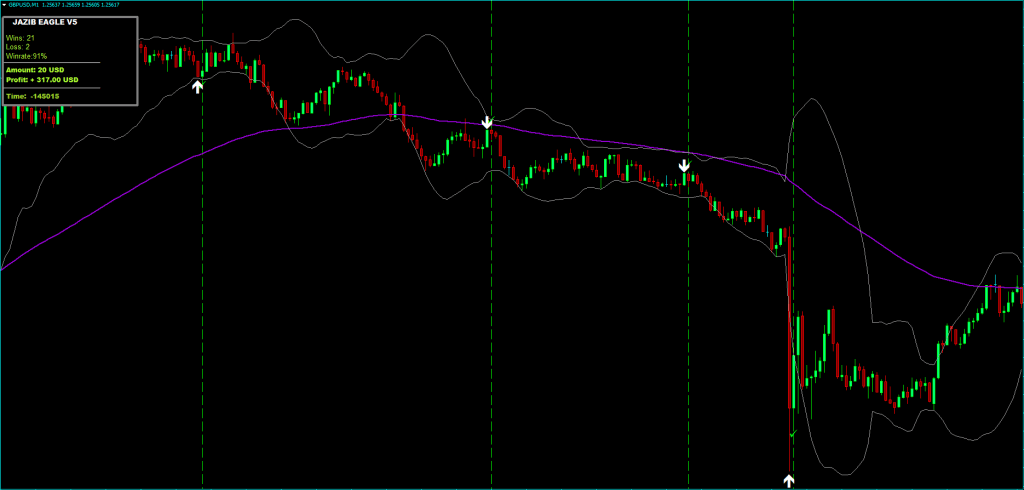The Jazib Eagle V5 Indicator is a sophisticated tool designed for traders in the binary options market. It offers a unique approach to technical analysis by providing clear, non-repainting signals for both Call and Put options. In this article, we will explore the key features of this Binary Options Indicator, its benefits, and how it can be effectively utilized in conjunction with other technical analysis tools.
The Jazib Eagle MT4 Indicator is known for its arrow-based signals that help traders identify optimal times to enter or exit positions in the binary options market. The indicator generates clear, actionable signals with no repainting, ensuring that traders can rely on the information without second-guessing previous signals.
This Binary Options Indicator improves upon the previous versions by integrating a powerful dashboard that provides real-time performance metrics such as win rates, profits, losses, and trade amounts. This addition allows traders to not only receive buy and sell signals but also track their trading performance over time.
Key Features of Jazib Eagle V5 Indicator
- Arrow-based Signals – The Jazib Eagle Indicator generates easy-to-read buy and sell signals directly on the chart. A white up arrow indicates a buy signal, suggesting potential upward movement, while a down arrow signals a sell opportunity, pointing to a possible price decrease.
- Non-Repainting – One of the notable benefits of the Jazib Eagle Indicator is that it does not repaint. This means that once a signal is generated, it remains on the chart, providing traders with consistent and reliable information throughout their trading session.
- Bollinger Bands, Support, and Resistance – In addition to buy and sell arrows, the indicator incorporates important technical elements like Bollinger Bands, support, and resistance levels. These provide extra context to the signals, giving traders a clearer understanding of market conditions.
- Real-time Dashboard – The Jazib Eagle V5 features a built-in dashboard that displays key performance metrics, including the number of wins, losses, win rate, total profits, and the amount traded. This allows traders to assess their progress in real time and adjust their strategies as needed.

Download a Collection of Indicators, Courses, and EA for FREE
How to Use this Binary Options Indicator
- Install the Indicator – Download and install the Jazib Eagle V5 indicator in your MT4 platform. Once installed, apply it to your desired chart and timeframe.
- Monitor Buy and Sell Signals – Look for the white up arrows for buy signals and down arrows for sell signals. These arrows appear when the market conditions meet the criteria set by the indicator.
- Use Additional Tools for Confirmation – To enhance the effectiveness of the signals, use the Bollinger Bands and support/resistance levels as additional filters. This helps ensure that you are entering trades based on solid technical reasoning.
- Track Performance with the Dashboard – Keep an eye on the dashboard to monitor your trading performance. The metrics shown can help you assess your success rate and profitability, guiding your decision-making process in future trades.










nem működik az indikátor ,mert egy sor dll. file kell hozzá. így sajnos semmit nem ér.
Thanks admin looks good.
Repaints
On strategy tester, it gives more loss signal than wins 👎